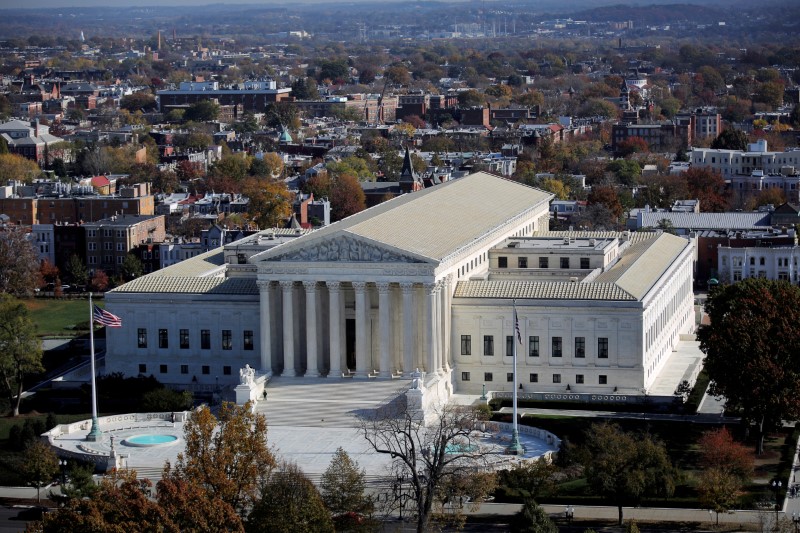WASHINGTON/PHILADELPHIA (Reuters) - U.S. President Donald Trump said on Wednesday he will make his choice to fill the vacancy on the U.S. Supreme Court on Feb. 2 as he seeks to restore the conservative majority on the high court, prompting Republicans in Congress to warn Democrats against blocking the nominee.
Three U.S. appeals court judges are among those under close consideration by Trump to fill the vacancy left by the death of conservative Justice Antonin Scalia nearly a year ago.
Appointment as a Supreme Court justice requires Senate confirmation for the lifetime post. Trump's fellow Republicans control the Senate with a 52-48 majority, but Democrats could try to block the nomination using procedural hurdles.
John Thune, the third-ranking Senate Republican, warned that his party would not allow Trump's nominee to languish.
"We will fill that seat," the South Dakota senator said in response to a reporter's question on whether Republicans might scrap the procedural hurdle known as the "filibuster" if Democrats use it to block the nomination.
Speaking on the opening day of a three-day retreat for Senate and House of Representatives Republicans in Philadelphia, Thune said that Republicans will have opportunities to consult with Democrats. He did not say how long that consultation process would be allowed to go on before potentially taking steps to end a standoff if Democrats erect barriers to the nomination.
More than three years ago, when Democrats controlled the Senate, they used their majority to change Senate rules in order to ban filibusters against presidential nominees other than for the Supreme Court. The move came after Republicans blocked several key appointees by then-President Barack Obama.
On Tuesday, Senate Democratic Leader Chuck Schumer said he told Trump in the meeting that Democrats would fight any nominee they consider to be outside the mainstream.
Trump is in position to name Scalia's replacement because the Republican-led U.S. Senate last year refused to consider Obama's nominee, appeals court judge Merrick Garland.
The current front-runners include three conservative jurists who were appointed to the bench by Republican former President George W. Bush: Neil Gorsuch, a judge on the Denver-based 10th U.S. Circuit Court of Appeals; Thomas Hardiman, who serves on the Philadelphia-based 3rd U.S. Circuit Court of Appeals; and William Pryor, a judge on the Atlanta-based 11th U.S. Circuit Court of Appeals.
White House spokesman Sean Spicer told reporters at a daily briefing on Wednesday that he would not get ahead of Trump’s decision, noting that the president had listed about 20 candidates for the Supreme Court during his campaign.
If not selected for the nation’s top court, some nominees could be contenders for the more than 100 vacancies on lower federal courts, he added.
